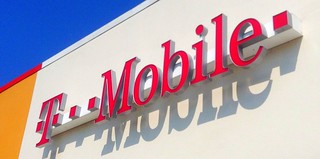By Carl Weiss
| Soup Nazi at Dewey Square - Boston (Photo credit: jeffcutler) |
No soup for you!
We all remember the Soup Nazi
on Seinfeld, the restaurant owner who would summarily refuse to serve a
customer over even the smallest of perceived slights. Well that’s what is in store for nearly
everyone who connects to the Internet if some big players in the cable and
telecom industries have their way.
Way back in 1995 when the
Internet was young, the rules were established that guaranteed that nobody
could have undue influence over the speed at which information was disseminated
online. What this meant to anyone
surfing the web was that the big conglomerates that already had a stranglehold
on the airwaves wouldn’t be allowed to monopolize cyberspace. So from the mid 90’s to the present the
Internet has had one speed limit for all.
Online businesses large and small were able to prosper. However, recent events proposed by a small
number of cable and telecom conglomerates are threatening the way we will all
be able to access the Internet—and not for the better.
AT&T Claims Net Neutrality Would Ruin the Internet
In a June 18 article by the Washington Post,
AT&T upped the ante by claiming that strong net neutrality rules such as
those in Europe would actually hurt the Internet.
“AT&T is among the most vocal
critics of reclassification. In a recent blog post, company exec Jim
| AT&T Logo Parody (white background) (Photo credit: ElectronicFrontierFoundation) |
Cicconi argued that reclassifying Internet providers — placing them under Title II of the
Communications Act instead of the more lenient Title I — wouldn't do anything
to prevent the rise of Internet fast lanes, because embedded in Title II is a
loophole that lets ISPs manipulate some traffic so long as it's not
"unjust" or "unreasonable." If the ISPs can successfully
claim that Internet fast lanes are necessary for, say, managing the load on
their networks, they might be able to wriggle out of a ban on fast lanes
altogether, defeating the whole point of reclassification, according to
AT&T.”
AT&T is not the only company that proposes eliminating net
neutrality. The Post article goes onto
explore the differences between Title I and Title II rules. But the most telling argument is actually
contained in the video at the end of the article which states: “If ISP’s like Verizon get their way,
they’ll sell a fast lane on the information superhighway to companies willing
to pay for it. That two-sided market
could leave companies who don’t pay with slower speeds. And if things get ugly, ISP’s would be able
to block their sites entirely.”
Clearly this would have the power to affect the success or failure of
every business online. This pay-to
| T-Mobile, Sign. 6/2014 (Photo credit: JeepersMedia) |
-play scenario
would hold every Internet user hostage to their ISP’s. Think that can’t happen? Well it already has happened on a small scale
for every T-Mobile user who streams music. Here is a quote from a recent quote from
Time.com.
“Instead of treating all music
services equally, T-Mobile has decided that the most popular streaming music
services should get better treatment. If you have a limited data plan on
T-Mobile, you won’t come any closer to your monthly cap when using Spotify,
Pandora, Rhapsody, iTunes Radio, iHeartRadio, Slacker Radio and Samsung Milk
Music. This is the most insidious type
of net neutrality violation, because it’s being pitched as a benefit. Most
users stand to gain from the free data, so they may not even care about the
slippery slope they’re on.” http://time.com/2901142/t-mobile-unlimited-music-net-neutrality/
While not technically a net neutrality violation, by playing favorites,
T-Mobile is sliding down a very slippery slope which if backed by the power of
law could mean a very different Internet in the not so distant future. The problem is that the law itself has lost
much of its power to protect the consumer’s rights after an appellate court
threw out the original version of the regulations back in January.
A June 20 article by pcworld.com stated that, “Congressional Republicans are intent on derailing the
FCC’s efforts to reinstate net neutrality rules. Conservative
economists and telecom experts have
| US Congress (Photo credit: jessie owen) |
been pushing antitrust law as an
alternative to new rules on which the FCC is currently
seeking public comment. Some
Republican members of the U.S. House of Representatives Judiciary Committee
said that the FCC should abandon its efforts to reinstate its net neutrality
rules and instead rely on the Federal Trade Commission or the Department of
Justice to police net neutrality.”
If that were to happen then the only way that violations could be
addressed would be via the country’s antitrust laws. This would open the floodgates to
ISP-designed online toll-roads. If you
think your cable bills are high now, if the current FCC rules concerning net
neutrality fall by the wayside, you ain’t seen nothing yet. Not only would your access to the Internet be
impinged upon by a few well-heeled companies, but fees for a number of services
that you subscribe to online would also rise in order to offset their cost of
doing business online. Gone would be the
days of free online phone services like Skype.
Streaming video services like Netflix would cost much more than it does
now and even YouTube might be forced to charge to view videos on their service.
If you still believe the cable companies’ pap that they are the ones
being wronged, check out this post on boingboing.net:
Cable
lobbyist-turned-FCC-Chairman Tom Wheeler can promise to override state laws prohibiting publicly owned ISPs, but it doesn't matter if all the big cities are locked into ten-year
franchise agreements with cable and phone companies. As an Electronic “Frontier
Foundation editorial points out, US mayors can and should take
steps to make municipal broadband a reality, putting
competitive pressure on America's foot-dragging, worst-of-breed ISPs. Many
cities are sitting on a gold-mine of "dark fiber" that can be lit up
to provide blazing-fast connections, and even in places where state law
prohibits municipal Internet service, there are loopholes, like the one that
Chattanooga, TN used to light up a gigabit network that's 100 times faster than
most Americans can get. Unfortunately, many cities have faced serious barriers
to their efforts to light up dark fiber or extend existing networks. Take
Washington D.C., where the city’s fiber is bound up in a non-compete contract
with Comcast, keeping the network from serving businesses and residents.”
 That’s right sports fans, not only are the cable companies trying to
take away your access to low-cost, high-speed Internet access, but they are
doing everything in their power to make sure that cities across the country
can’t provide municipally owned and operated fiber-optic access with superior
speeds to businesses and citizens alike.
That’s right sports fans, not only are the cable companies trying to
take away your access to low-cost, high-speed Internet access, but they are
doing everything in their power to make sure that cities across the country
can’t provide municipally owned and operated fiber-optic access with superior
speeds to businesses and citizens alike.
So, it seems that when it comes to giving the consumers a fair deal on
Internet access, the cable conglomerates are trying to make the Soup Nazi seem
like a Good Samaritan. If this prospect
bothers you then I strongly suggest you write your congressman and the FCC.
When he isn’t railing against online
injustice, Carl Weiss is president of Working
the Web to Win, a digital marketing
agency based in Jacksonville, Florida. You can listen to Carl live
every Tuesday at 4pm Central on BlogTalkRadio

















